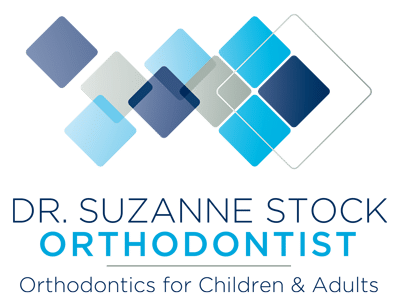When it comes to straightening teeth, there are two main options for orthodontic treatment: Invisalign and braces. Braces have been around for centuries and have changed a lot over the years due to advancements in technology. Invisalign is relatively new, being invented in the late 1990s and becoming more widely used in the last decade.
These two treatments achieve the same purpose through different methods. If you’re comparing the two in order to choose which one you’re going to try, here’s what you need to know about them both.
Invisalign is Invisible, Braces are Not
Invisalign’s claim to fame is that the trays (called aligners) you wear over your teeth are basically invisible. They’re made of clear plastic that is only noticeable if you look closely or know that they are there. Most people won’t know that you’re wearing them. Braces might cause some people to feel self-conscious. However, the brackets and wires are much smaller and less noticeable than they used to be. Clear braces made of ceramic are another option for those who want a more subtle look.
Braces Work for Most Patients, Invisalign May Not
Not all patients are ideal candidates for Invisalign. Some orthodontic issues can only be corrected with braces. Invisalign can usually correct mild crowding, slightly crooked teeth, gaps, and typical bite issues like an overbite. Braces can correct most orthodontic issues for the majority of patients. Only a small percentage may need additional interventions besides braces.
Invisalign Only Works if You Wear It, Braces are Always Working
One key aspect of Invisalign is that you need to wear the aligners for at least 22 hours a day, every day, in order for the treatment to be effective. If you’re not wearing your aligners, nothing is happening. Braces are always on your teeth, therefore they are always working to shift your teeth into the correct position. This can be an issue with children and teens especially, who are more likely to forget to wear their aligners.
Braces May Take More Time Than Invisalign
On average, Invisalign treatment is shorter than braces. This is partly because Invisalign patients’ orthodontic issues are not as extensive in the first place, otherwise they would not have been an ideal candidate for Invisalign.
Invisalign Patients Don’t Have to Avoid Any Foods, Braces Patients Do
There are certain foods that patients with braces should avoid eating because they can damage the braces. Invisalign patients can simply remove their aligners and eat whatever they want.
You Can’t Lose Your Braces, But You Can Lose Invisalign Trays
Since braces are attached to your teeth you don’t have to worry about losing them. However, it is easy to lose your Invisalign trays if you don’t store them properly in the case. This is another aspect of Invisalign that can be difficult for children and teens.
Invisalign May Be More Comfortable Than Braces
Some patients find Invisalign to cause less discomfort than braces. The smooth plastic fits snugly to the teeth and does not typically cause irritation to the soft tissues of your mouth. Metal brackets can be rough in the beginning while your mouth is getting used to them.
Which Option is Right For Me?
If you’re trying to decide between Invisalign or braces for yourself or your child, it doesn’t have to be a difficult decision. Consult with an orthodontist who can evaluate your or your child’s teeth and determine which option would be the most effective at achieving the desired results. Discuss the pros and cons with your orthodontist to help you make your decision.
Ask Dr. Suzanne Stock
Dr. Stock is an experienced orthodontist serving Iowa City, IA and the surrounding areas of Fairfield, Washington, and Williamsburg. Our practice provides both braces and Invisalign, as well as other orthodontic treatments. We can make a recommendation for which option would be best to correct your orthodontic issues.
Contact us at any of our four convenient locations to request a complimentary consultation:
Iowa City: 319-338-8658
Fairfield: 319-800-9497
Washington: 319-800-9497
Williamsburg: 319-800-9497

